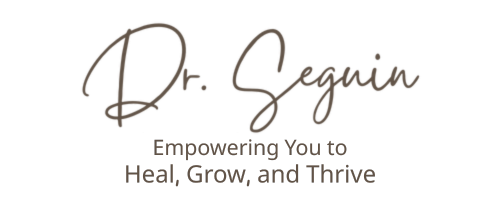Have you ever felt ashamed just for having needs?
Maybe someone called you "too sensitive," or dismissed you when you asked for reassurance, support, or clarity. Other examples of emotional invalidation include "you are intense," "You are overthinking it," or "that is not a big deal."
It can also come in the form of silence -- the shrug, the change of subject, the blank stare that says "This conversation makes me uncomfortable."
And over time, you learn to carry that discomfort alone.
Being judged for your needs doesn't just hurt in the moment: it can teach you that your inner world is wrong. Over time, you may start shrinking yourself to avoid criticism, silence your emotions to keep the peace, or question whether you are even allowed to feel what you feel.
This is the hidden harm of emotional invalidation.
When someone judges your needs, they’re not just disagreeing with you — they’re suggesting that your internal experience is wrong, excessive, inconvenient, or even manipulative.
How Judging Needs Becomes Internalized
Repeated invalidation teaches you one thing: Your needs are wrong.
You begin to tell yourself the following:
• “That’s not a big deal. You’re overreacting.”
• “You’re too needy. You should be more independent.”
• “You always want too much.”
And it feels like:
• Shame
• Self-doubt
• Abandonment
• The urge to shrink, appease, or disappear.
Why It Hurts So Deeply
We’re wired to seek connection. In early life, when we express a need — for comfort, reassurance, closeness — and it’s met with warmth and attunement, we learn: my needs are valid, and I matter.
The Long-Term Impact of Need-Shaming
Being judged for your needs doesn’t just affect how you feel in the moment. It can shape how you show up in every area of your life:
• In relationships: You might silence yourself to keep the peace or only express your needs after they become urgent and explosive.
• At work: You may struggle to ask for help, set boundaries, or advocate for yourself.
• In your inner world: You become your own harshest critic, dismissing your pain before anyone else gets a chance to.
Eventually, you may find yourself disconnected from what you even want — because it feels safer not to know.
Your Needs Are Not a Problem
Let’s get this clear:
• Needing reassurance does not make you clingy.
• Wanting closeness does not make you weak.
• Asking for space, clarity, honesty, or emotional safety is not “too much.”
It’s okay to need. It’s okay to ask. It’s okay to want more — especially if what you’ve been given has been crumbs.
Being human means having needs. And being in healthy connection means being able to express those needs without fear of judgment or shame.
What You Can Do When Someone Judges Your Needs
Here are some steps to begin reclaiming your voice:
1. Validate your feelings. Even if others do not understand them, they are still real.
2. Notice the self-judgment. Do you dismiss your emotions before anyone else can?
3. Identify the pattern: Has this person judged your needs before? Is this a safe space for emotional expression?
4. Respond or retreat: You can assert gently, “This need feels important to me, even if it doesn’t make sense to you.” Or you can protect your peace and disengage.
5. Seek out emotionally safe relationships: Healing happens in spaces where your feelings are met with curiosity, not criticism.
You Deserve to Be Seen and Heard
You are not “too much.” You are not “too sensitive.” You are simply someone with needs— just like every human being.
When your needs are judged, it can feel like a wound to your very sense of self. But healing begins when you stop judging your own needs and start honoring them, one small step at a time.
Ready to Feel Seen, Heard, and Supported?
If this post resonated with you, you are not alone. You deserve to have your needs met with empathy and respect.
As a trauma-informed psychologist, I help clients work through emotional invalidation and the lingering effects of being told their needs do not matter.
Virtual therapy available in Florida & Colorado. Book a free 15-minute free consultation.
Visit Seguinpsychotherapy.com or email leanne855@hushmail.com to get started.
